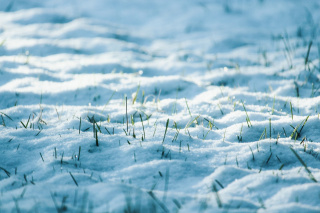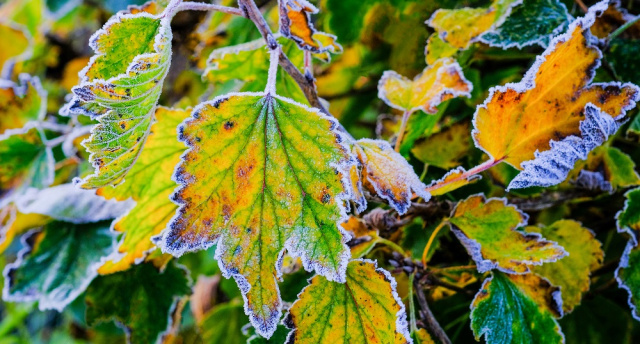Winters in Georgia bring welcome relief from the heat and humidity of summer. But winters are not always welcomed by the turf and shrubs in your yard. Average winter temperatures in Roswell and surrounding areas can drop to the freezing point. In these cold temperatures, the grass and plants in your landscaping in Roswell can become vulnerable to frost and other inclement weather.
Winter Turf Issues
During winter, grass enters its yearly dormant stage. In this stage, the grass does not grow or absorb nutrients from the soil. It is like the grass is hibernating. But if there is a mild winter, with temperature swings where things warm up and then cool down, this can pose a hazard to the grass.
As temperatures rise, this signals to the grass that the dormant stage is over and it’s time to wake up. The grass begins absorbing nutrients in the soil, and the grass begins to grow as if it were spring. But then, once a cold snap hits, the grass goes back into its dormant stage. This back and forth of going dormant and growing and then going dormant again is hard on both the grass and soil. Then, in the spring, most of these nutrients will be gone from the soil. Your lawn will not have much to draw on to grow and become green and healthy.

Nutrients in Soil
This process of coming alive again is especially hard on the soil. Soil is not just dirt. Good soil is filled with lots of nutrients, which encourages the growth of the grass. Bad soil does not provide the grass with the nutrients it needs to grow and look green. Nutrients a lawn needs to grow and flourish, include nitrogen, phosphorus, and potassium. Nitrogen helps with the production of chlorophyll, which encourages healthy leaf growth. Phosphorus aids in the growth of healthy roots and stems. Potassium gives a lawn strength to help in times of drought and aids in fighting disease. To provide these nutrients, you should spread fertilizer across your landscaping every spring and fall.
Lawn Disease
Another issue during a mild winter is that the temperature swings can lead to lawn diseases, such as rust and red thread. In a typical winter, where temperatures consistently stay in the low 30s, this is not an issue because the grass remains in the dormant stage and is protected from contracting a disease. Most grass fungal infections require both warm temperatures and humidity. In a mild winter, if you suspect your lawn has become infected, call your landscaper for advice. When you had your yard landscaped, a good company specializing in landscape design in Roswell, GA, will educate you on the impact of winters on your lawn.

Winter Shrub Issues
Just like grass, shrubs enter a dormancy stage during the cold temperatures of winter. In this stage, the plants’ metabolic systems shut down. When spring comes and warmer, moisture temperatures appear, flowers bloom, and the plants leaf out. But during a mild winter, there is the possibility that your shrubs will bloom and leaf out early. Then as temperatures drop back into the normal winter range, the shrubs go back into the dormant stage, and the early blooms and leaves die and fall off the shrubs. This could leave your shrubs bare of flowers and leaves throughout the spring and summer.
To learn more about the impact of winters on your turf and shrubs, and how to protect them, call the Stoeckig Landscape Group at 770-831-1790.
